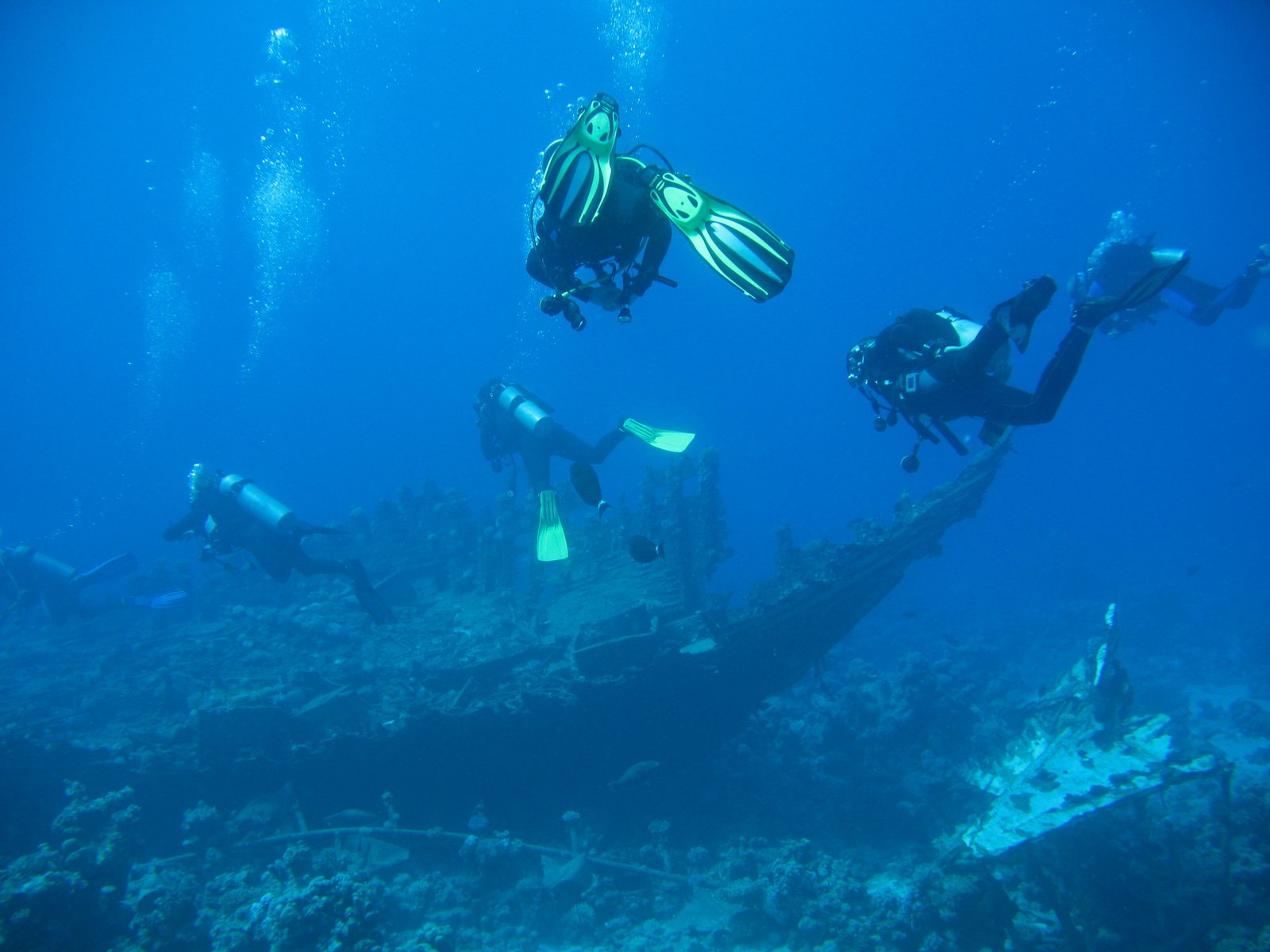When we’re taught to dive, we’re all taught the buddy system (or some derivative thereof), and we’re told that we never, ever dive alone. But if a buddy pair is two people, what do you do if seven people want to go diving together? Or three? Or (yikes!) one?

The number of divers in a group don’t always add up. Then what?
Copyright: Thomas Grønfeldt Senger
The beauty of the buddy system
The buddy system was created to increase the safety and the pleasure of diving. By having an additional diver alongside you, you have complete redundancy of everything: extra air tank, extra regulator, extra pair of eyes, extra brain. And by making diving a social thing, it makes it all the more fun. And splitting a group of people up into pairs of two makes life easier on everyone, as every buddy pair accepts responsibility for each other, making them a self-contained unit. Military special forces do something similar, breaking a large platoon into smaller and smaller fragments, each one self-contained and able to perform on their own. So, essentially, if a pair of divers become separated from the group, they are still able to safely complete the dive, and solve any problems that may occur along the way.
But what if you an uneven number?
The idea of diving in pairs, and breaking a large group into pairs, makes a lot of sense. But what if you’re an uneven number? Does that then mean that one dive doesn’t get to go?
If you’re an entry-level diver, what I’m about to say may rock your world, but there are dive organizations that do not use buddy systems. You OK? Good, then we’ll continue. Some of the more specialized organizations, such as Global Underwater Explorers (GUE) and especially Unified Team Diving (UTD), promote an idea of considering all divers diving together as a team, the smallest possible team being made up of two people, but with larger teams being the norm. Teams take responsibility for each other, and everyone is everyone else’s backup.
It is important, though, that everyone on the team realize their shared responsibility, and take it seriously. There’s an old saying, that when three people share responsibility for something, there’s 10 % responsibility for each. The rest falls between the cracks. When we’re just two people assuming responsibility for each other, it is easy to tell what our commitment is, but when we share responsibility with more people, there’s a risk that we assume everyone else is on top of things, so we don’t have to be. But ultimately, a dive team can be as strong a unit as a buddy pair, or stronger.
Going solo
Solo diving was the tabu of the dive world. We were all taught that we should never dive alone, yet a lot of divers did, though no-one spoke of it. Either by design, heading out on their own out of preference or necessity (such as not being able to find a buddy, or wanting to spend a lot of time trying to get the right photo), or by chance, as in when an experienced diver is buddied up on a holiday dive with an inexperienced diver who’s been out of the water for a year or more. Sure, technically they’re a buddy pair, but would the inexperienced diver be able to help his or her buddy in case of an accident?
From that perspective, you could argue that all instructors doing Open Water Diver courses or similar, are in fact diving solo (unless they have a Divemaster or other experienced diver with them). They may be diving with a bunch of people, but would a group of yet-to-be-certified divers really be able to help their instructor, if he or she should get into trouble?
In recent years, solo diving has become more accepted, with some organizations launching solo diver courses, even PADI has one these days (though they focus more on self-reliance than on solo diving)!
It should be said that solo diving is definitely not for everyone. You need the proper level of experience, training and equipment, before venturing out on your own, and should only do it at dive sites that are well within your comfort zone. So kids, don’t try this at home.
No diver left behind!
Just because you don’t have a regular buddy to dive with, shouldn’t limit you from diving. Diving in teams of three or more can be done, with the proper planning and awareness, and even diving solo can be an option for the experienced, properly trained diver. Regardless of your choice, its all about being aware of your choice, and adjusting your emergency procedures accordingly.

